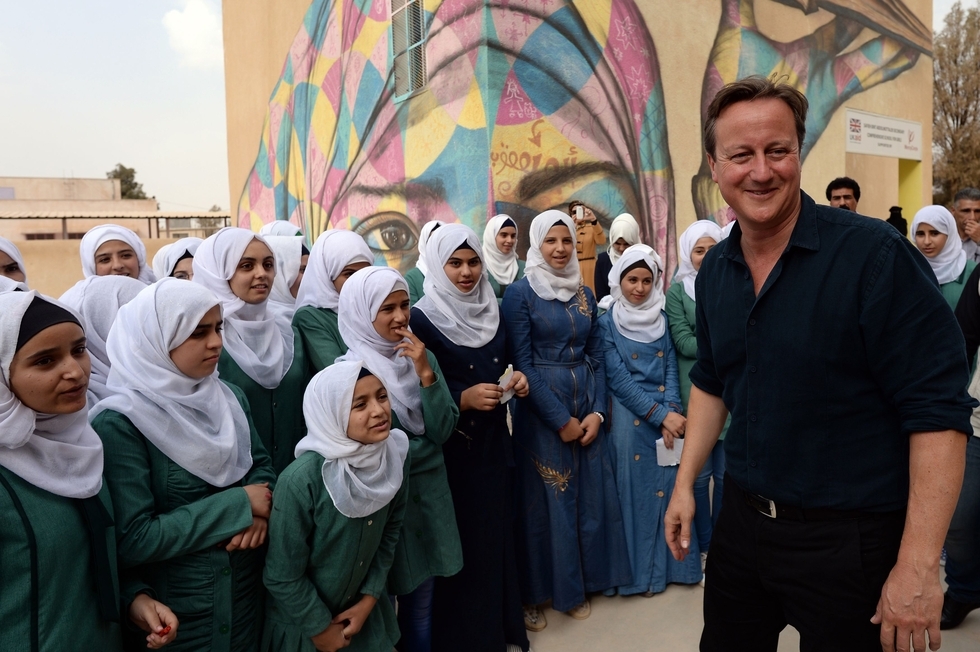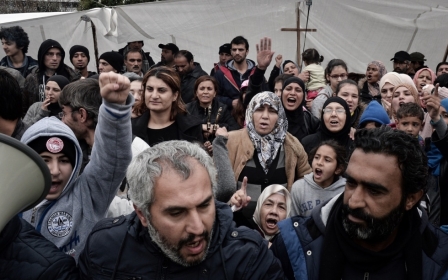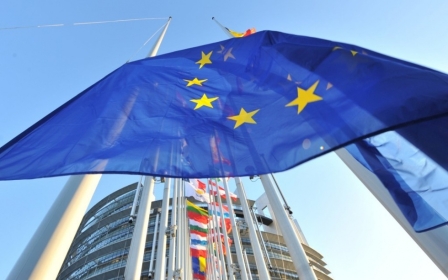UK resettles fewer than 2,000 Syrians in two years of flagship scheme

Britain’s response to the Syrian refugee crisis has been labelled “woefully inadequate” after new government figures showed that less than 2,000 Syrians have been resettled in two years under a flagship scheme to provide safety for the most vulnerable refugees.
According to the latest Office for National Statistics (ONS) figures, released on Thursday, Britain’s vulnerable persons relocation (VPR) scheme had resettled just 1,854 Syrian refugees since it was set up in May 2014.
Prime Minister David Cameron has promised to resettle 20,000 Syrian refugees by 2020, but opposition politicians and campaigners say that Britain needs to do more to help the 4.84 million Syrian refugees in the Middle East and Europe.
Steve Symonds, director of refugee rights at Amnesty International UK, told Middle East Eye: “These statistics are simply more evidence of the UK’s woefully inadequate response to a global refugee crisis. Compare the number of refugees from Syria living in, for example, Lebanon – more than one million – with the fewer than 2,000 resettled to the UK under the government’s scheme. The disparity could not be more stark between the response of a country barely the size of Devon and Cornwall combined, and that of the UK.”
The new figures show that just 0.19 per cent of Syrian refugees worldwide have found sanctuary in the UK, with 1,667 resettled under the VPR scheme and an additional 2,235 granted protection under other Home Office schemes and student visas. Britain received just 3 percent of all asylum claims made in the EU last year, said the Refugee Council.
Tim Farron, the Liberal Democrat leader, said given the scale of the crisis, the government needed to take more action: “It is time the prime minister stood up and used Britain’s power to change attitudes and save lives. He must not turn his back on the world’s most vulnerable and should lead the response in the European Union rather than run away from it, but we are paralysed by a campaign too afraid to talk about refugees.”
Judith Dennis, policy manager at the British Refugee Council, said: “Today’s statistics once again show that while the world is in the grip of one of the greatest ever refugee crises, the UK is simply not pulling its weight. Britain received just 3 per cent of all asylum claims made in the EU in 2015 and ranked 17th in Europe in terms of asylum applications per head of population.
"We continue to see just how difficult it is for Syrians fleeing the horrors of persecution and war to reach safety in Britain. People are literally running for their lives; they have escaped unimaginable violence and danger. We are calling for Britain to increase the opportunities for refugees to travel here safely and legally, instead of forcing families to continue to make dangerous journeys in search of safety.”
The figures on refugees were released as part of a broader report on immigration which was seized on by both sides of the EU referendum debate in Britain ahead of the vote on membership on 23 June.
They came as council officials in Teesside, in the north of England, were forced to apologise after the arrival of a group of Syrian refugees under the VPR scheme was met with complaints from teachers and parents at a local school.
The staff and parents at Overfields primary school in Redcar and Cleveland were taken aback when the refugees arrived at an empty council building in the grounds of the school, the local press reported. The 35 refugees had just arrived in the UK from camps in Lebanon and were taken to the “welcome centre” to be given cups of tea.
One parent told the local Gazette newspaper: “My kids attend Overfields Primary School and within school grounds there is an unused building.
“As we picked our kids up today you could imagine our surprise when we saw the full bus.”
Middle East Eye propose une couverture et une analyse indépendantes et incomparables du Moyen-Orient, de l’Afrique du Nord et d’autres régions du monde. Pour en savoir plus sur la reprise de ce contenu et les frais qui s’appliquent, veuillez remplir ce formulaire [en anglais]. Pour en savoir plus sur MEE, cliquez ici [en anglais].



